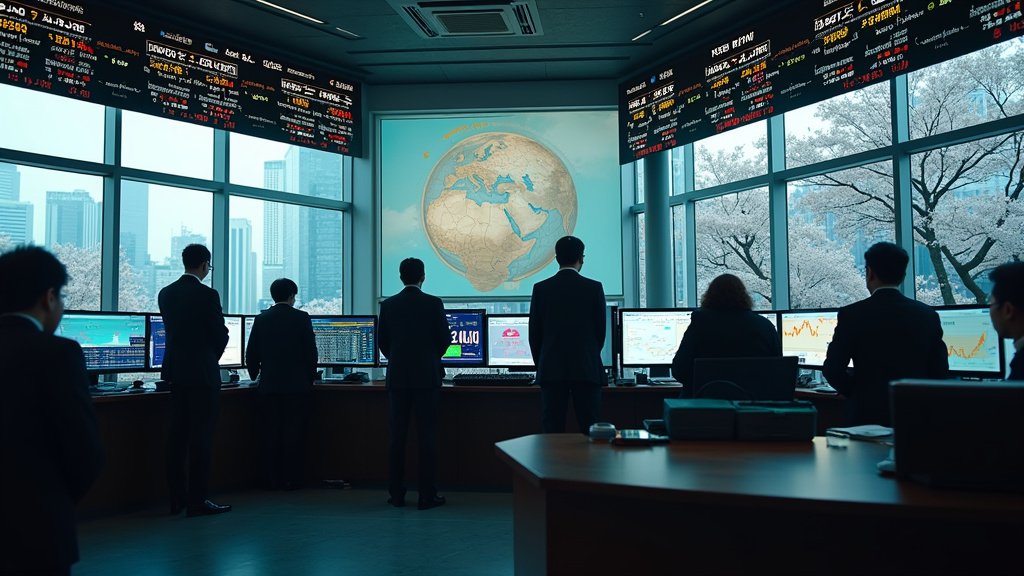Global markets experienced a flurry of activity on July 3, 2025, as several key economic and political developments unfolded across the globe. From the halls of the United States Congress to the bustling trade routes of Southeast Asia, the day was marked by significant shifts and realignments.
US House Republicans Face Fiscal Hurdles
In Washington, D.C., Republicans in the US House of Representatives grappled with the passage of President Donald Trump’s ambitious tax cut and spending bill. The proposed legislation, aimed at stimulating economic growth, faced significant hurdles as some hardliners within the Republican ranks withheld their support. These members expressed concerns about the potential costs associated with the bill, fearing it could lead to an unsustainable increase in the national debt. The debate highlighted the ongoing tension within the party between fiscal conservatism and the desire to deliver on the President’s economic agenda.
Trade Wars and Tariff Adjustments
Trade policy took center stage as the United States government announced a 20% tariff on a wide array of Vietnamese exports. The move, designed to address perceived trade imbalances and protect domestic industries, was met with a mixed response from economists and trade analysts. While some saw the tariff as a necessary measure to level the playing field, others warned of potential disruptions to global supply chains and the risk of retaliatory actions by Vietnam. This development cooled simmering trade tensions that had been brewing for months, adding further uncertainty to the international trading system.
Simultaneously, discussions continued with India to finalize a comprehensive tariff-reducing deal. Negotiators from both countries were working diligently to reach an agreement before the self-imposed deadline of July 9th. The stakes were high, with the potential for increased trade and investment on the line. A successful agreement would not only boost economic ties between the US and India but could also serve as a model for future trade agreements in the region.
Corporate Governance and Accountability in Japan
Across the Pacific, Japan witnessed significant developments in the realm of corporate governance. Shareholder activism intensified as investors pushed for increased management accountability within major corporations. These demands came in the wake of several high-profile corporate scandals, highlighting the need for greater transparency and stricter oversight. Corporate leaders were under pressure to implement changes that would improve financial performance and protect the interests of shareholders. These changes included strengthening the role of independent directors and increasing the frequency of shareholder votes on key decisions.
Singapore and Cambodia Strengthen Diplomatic Ties
In a demonstration of deepening international collaboration, Singapore and Cambodia announced plans to significantly enhance their partnership. The two nations, which have enjoyed 60 years of diplomatic relations, pledged to deepen cooperation in several key areas, including renewable energy and trade. The move underscored the growing importance of Southeast Asia as a hub for economic growth and strategic partnerships. The collaboration included joint projects focused on sustainable development and building a more robust regional economy. This deepened cooperation signals a continued commitment to fostering regional stability and prosperity in the face of global challenges.

